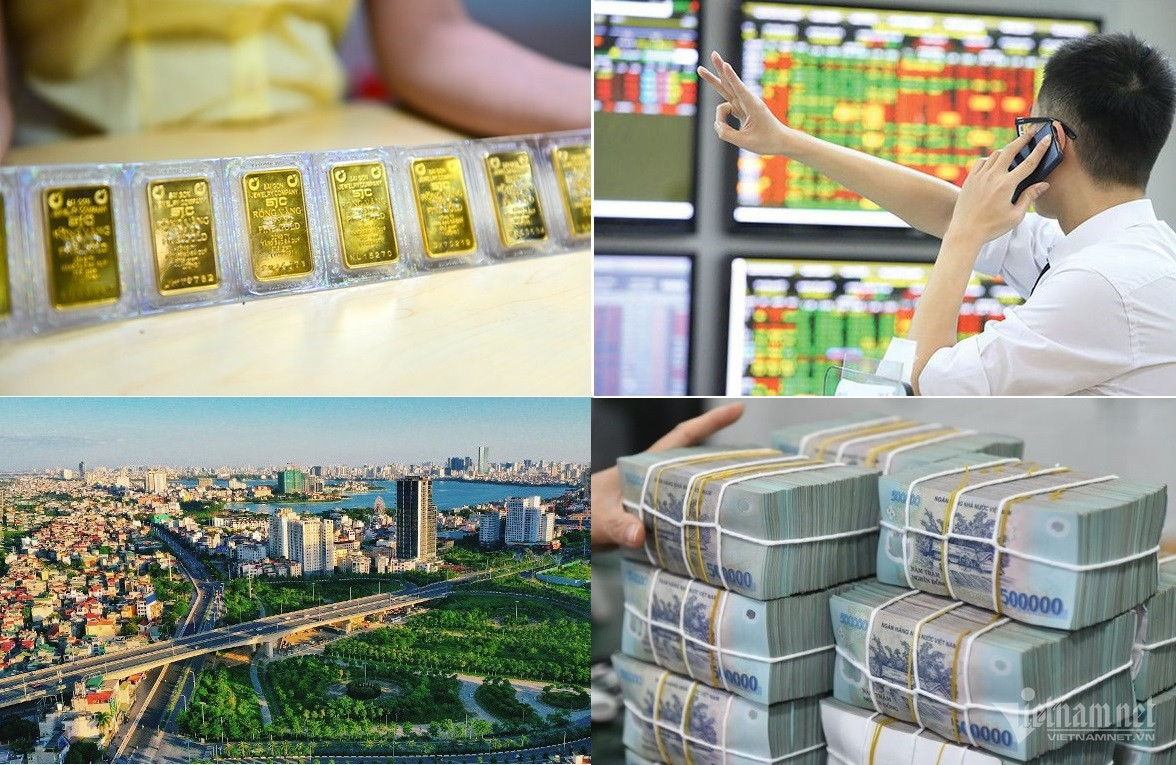
State Securities Commission (SSC) Chair Vu Thi Chan Phuong said the stock market performed well in 2023 as a capital mobilization channel with VND418.271 trillion raised, up 33.5 percent over 2022.
The VN-Index increased by 12.2 percent, reflecting positive economic prospects and businesses’ operations.
Promoting the stock market to develop in a transparent, effective and sustainable way is the major mission for 2024. Phuong promised to take measures to fix problems in order to attract foreign indirect investment and obtain a stock market upgrading.
SSC will build a data center to support the management and supervision of the stock market.
Ministries’ role
Deputy Governor of the State Bank of Vietnam (SBV) Pham Thanh Ha said the central bank pursued a monetary policy to help stabilize the macro economy in 2023, control inflation, and support economic recovery and the development of the stock market.
In 2023, SBV eased operating interest rates four times, which helped deposit and lending interest rates decrease by 2.5 percent per annum, while still ensuring a stable dong/dollar exchange rate and curbing the inflation rate at 3.25 percent, lower than the targeted level of 4.5 percent.
The achievements helped calm investors, thus supporting the development of the stock market.
The primary interest rate cuts will cause commercial interest rates to drop in the time to come.
In 2023, Fitch upgraded Vietnam's long-term national credit rating to BB+, with a "Stable" outlook, which has important significance for Vietnam’s efforts to enhance its position and reputation in the international arena.
The Vietnamese stock market is ranked by MSCI and FTSE Russel among Group 3 – frontier markets. FTSE Russel has put Vietnam on the waiting list, which is expected to be upgraded to an emerging market.
Deputy Minister of Planning and Investment Nguyen Thi Bich Ngoc stressed the need to have the stock market upgraded. Multinationals and international investment funds all have affirmed that if Vietnam becomes an emerging market, cash flow to Vietnam will be stronger.
Ngoc urged the Ministry of Finance (MOF) and SSC to issue an action plan to deploy the strategy on developing the stock market by 2030. Increasing high-quality commodities and new products with emphasis on green finance is recommended. She also suggested allowing foreign invested enterprises to list shares on the bourse.
Ketut Ariadi Kusuma from the World Bank in Vietnam commented that Vietnam’s wish to upgrade the stock market is a strategic move, suitable to an ambitious plan on becoming a higher average income country by 2035 and high-income country by 2045.
The World Bank estimated that the upgrading may bring up to $25 billion of new investment capital from international investors by 2030.
What businesses say
A representative from Vingroup said the government and state management agencies need to continue to design solutions for the stock market to get upgraded. It is necessary to check legal documents and set new regulations on new financial products to attract investors.
Yoon Sang Key, Minister-Counselor from the Embassy of the RoK to Vietnam, said the Vietnamese stock market can be expanded by diversifying listed shares on the HCM City Stock Exchange (HOSE) (moving listed shares on UpCom to HOSE), with 50 percent of capitalization of shares currently belonging to enterprises in goods manufacturing, industrial services, food and beverages. Currently, banks and real estate firms account for the last proportion of the capitalization on HOSE.
He suggested lifting the limitations on foreign ownership ratios to increase the supply of shares for foreign investors by issuing non-voting depository receipts (NVDR), and help startups and FIEs to list shares on the bourse.
To increase demand, he believes that banks and insurance companies should be encouraged to invest in shares, and that high-yield asset management strategies are needed.
Le Ngoc Lam, CEO of BIDV, proposed that the government set policies to encourage businesses to issue green bonds, and together with the government, implement the commitment on reducing net emissions to zero by 2050.
In 2023, the government approved the stock market development strategy to 2030, which says the capitalization of the share market would be 100 percent of GDP by 2025. The number of securities trading accounts is expected to reach 9 million by 2025 and 11 million by 2030.
Manh Ha